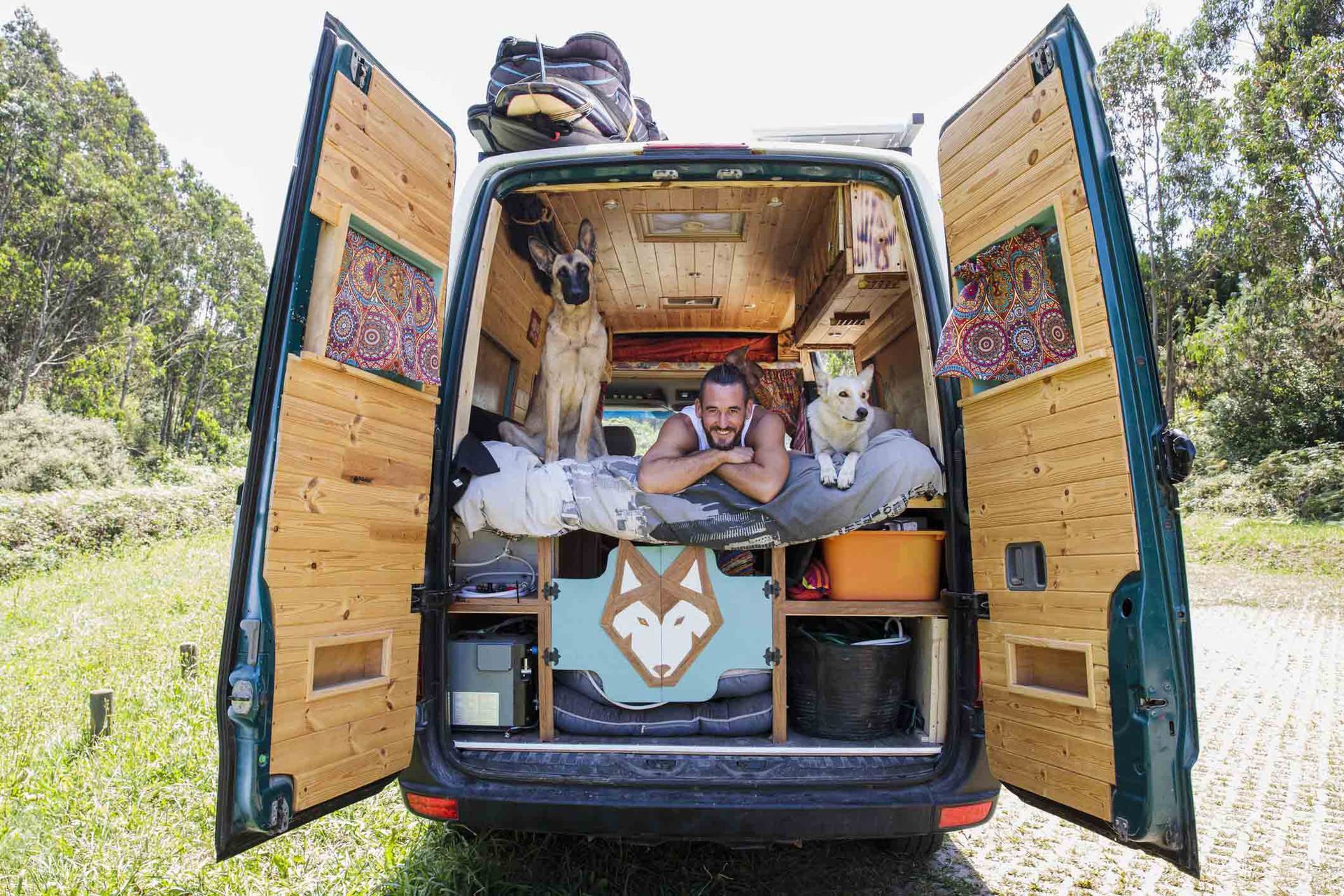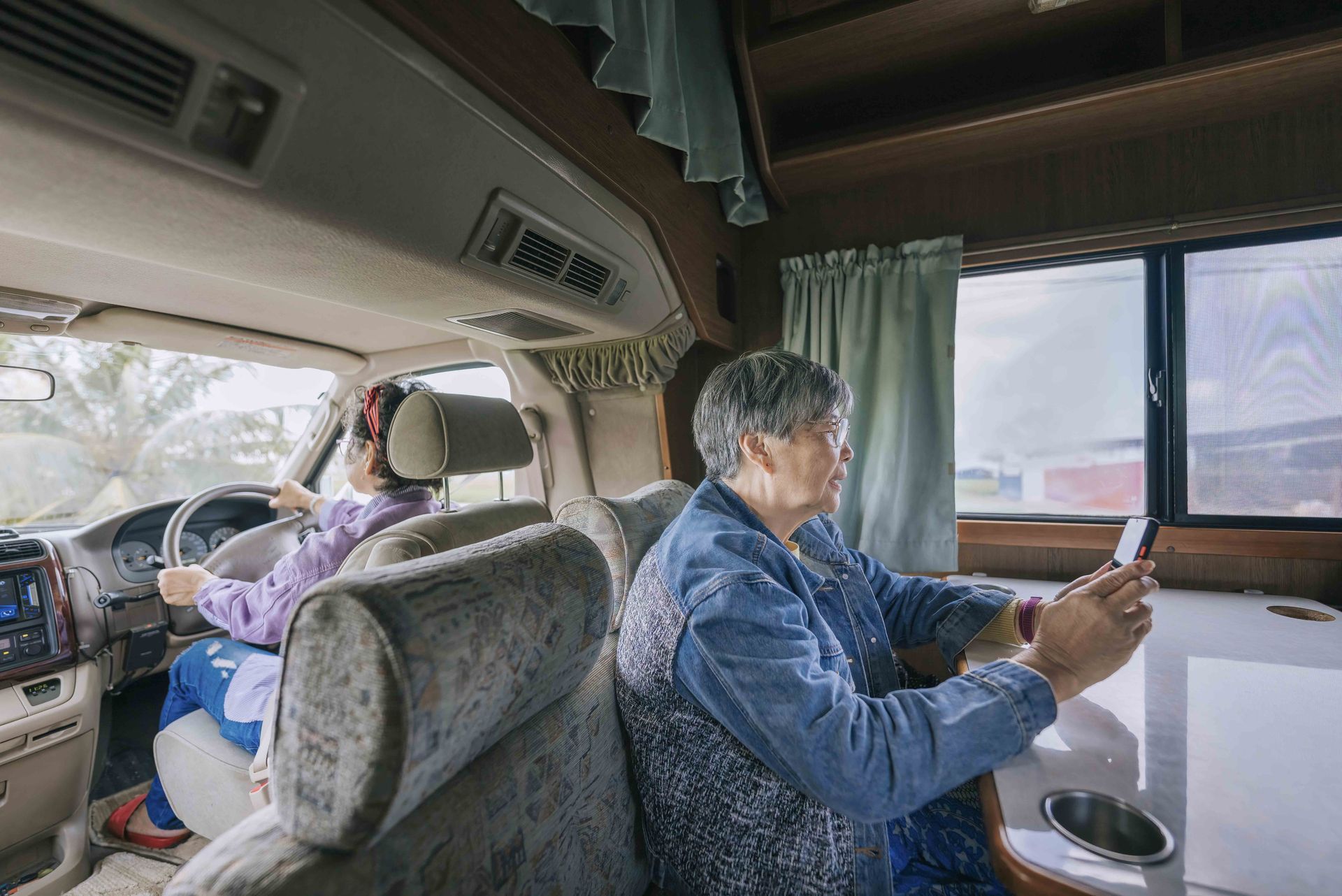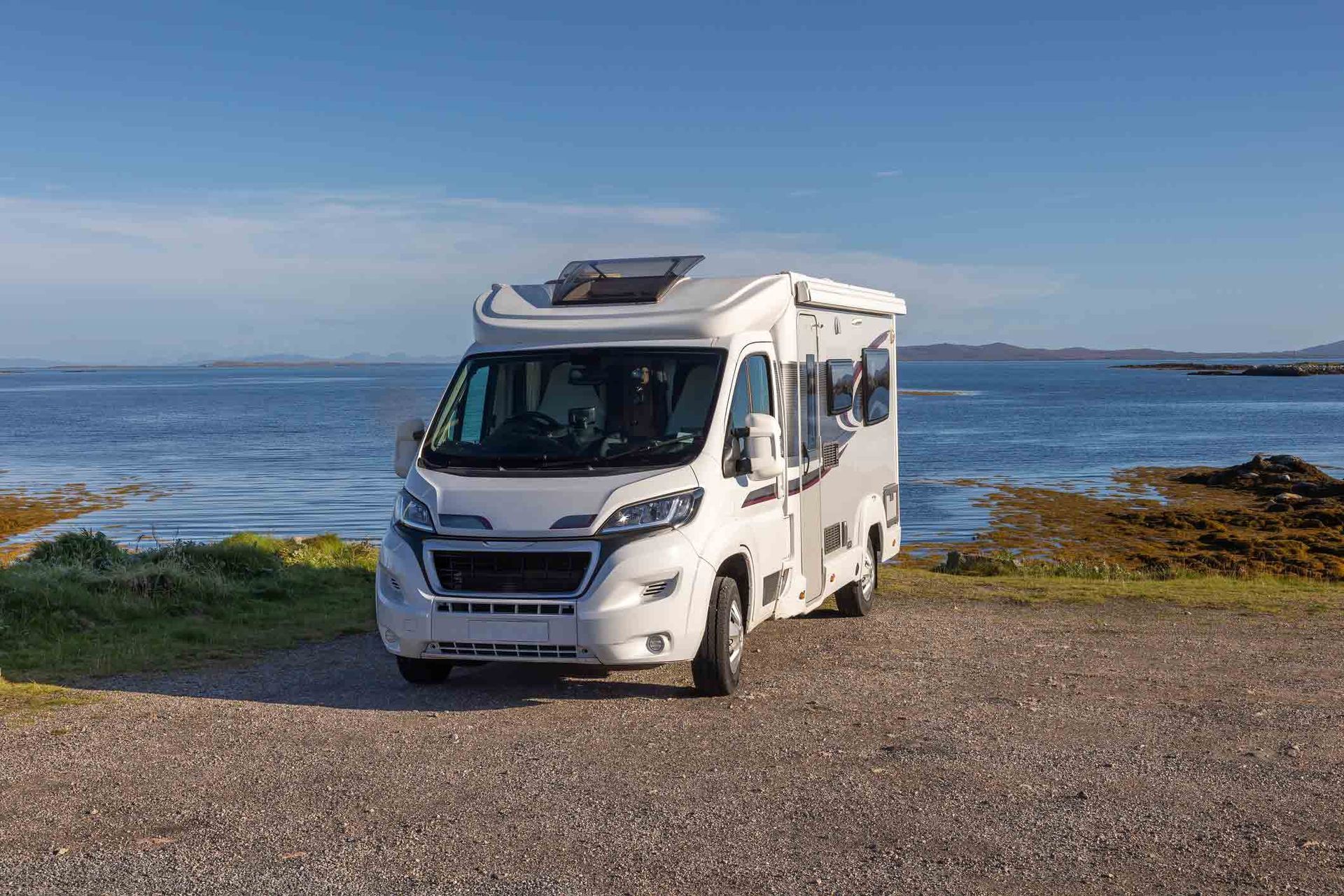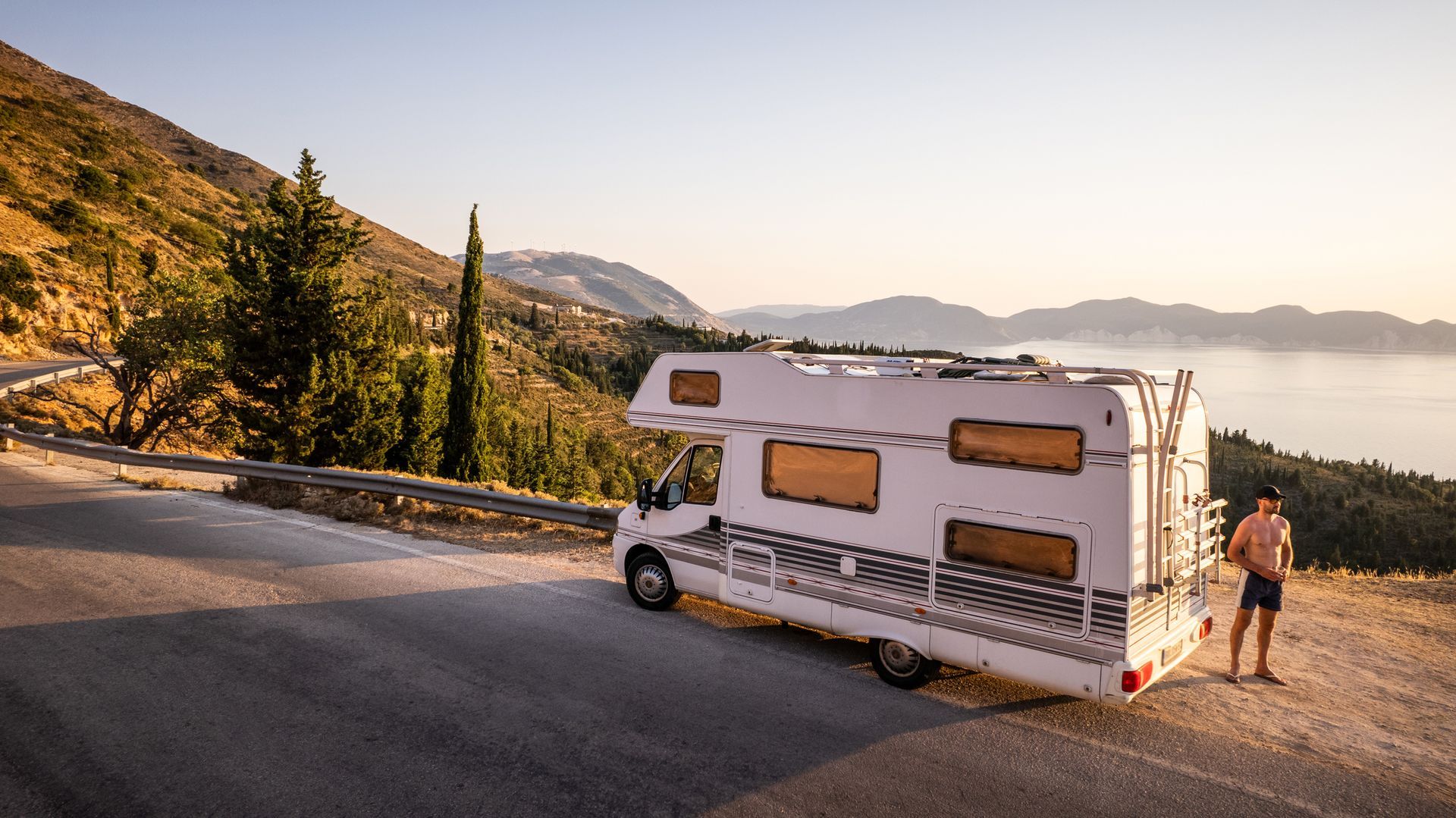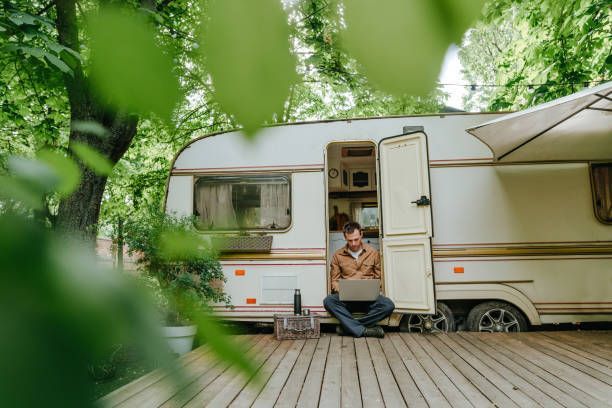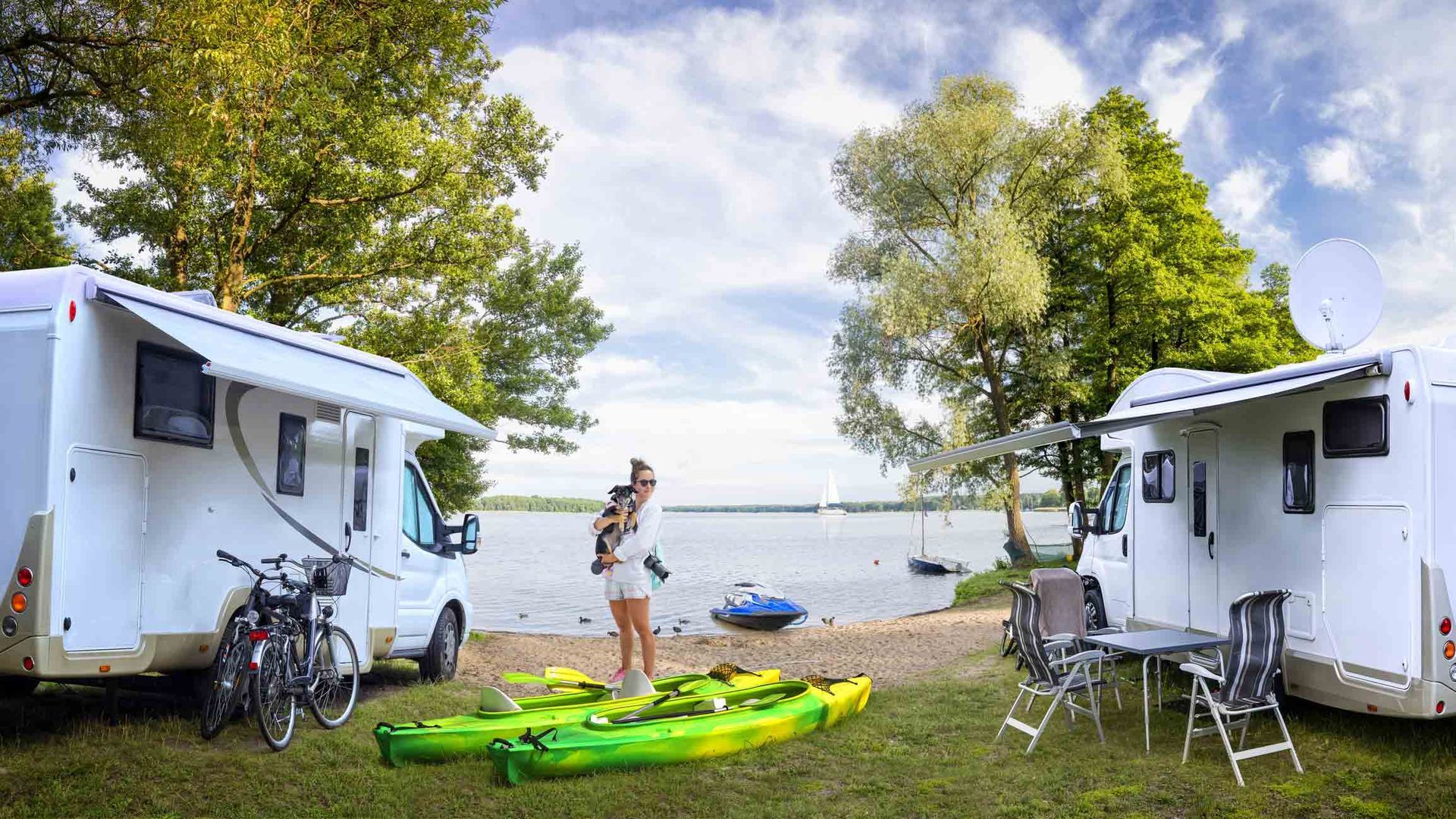Dry Camping – Semi Roughing It Without Losing It
We routinely have customers come into the shop who have purchased a new or new RV so they can enjoy more of what our incredible state and country have outdoors. While it's mostly an enjoyable new adventure, it can sometimes be frustrating and confusing, especially when someone is RVing in an area without any hookups. They do "dry camp," staying in the RV with no electric or water hookups. Trying to figure out how to make the water and power supply last, their entire outing can prove a difficult lesson. The overload of advice, reading material, and Google searches gives anyone a pounding headache. Most sources discuss solar power, added batteries, and/or generators. While these answers are great for do-it-yourselfers who have the time and money, for many folks, this is either undesirable or not an option, given space, time, ability, or cost limitations. With that in mind, I will provide alternative tips that are inexpensive and simple and don't require significant changes to your RV.
Batteries & Extending Your Power
- Some recreational vehicles have space for four or more batteries. Many, like vans and small travel trailers, can only accommodate two, at least without significant modification. It is sometimes possible to add more batteries, but it most likely comes at the cost of storage space. Therefore, many RV owners need more batteries to supply their coach power. My advice is to use 6V batteries instead of 12V. 6V batteries are the preferred power source for solar panels on your couch. 6V batteries have a higher and better current capacity than 12V due to the larger plates, which results in a slower discharge rate. My husband explains it to customers this way: A 12V battery is like a car with a 60-gallon gas tank, and a 6V battery is like a car with a 100-gallon gas tank. An important thing to remember if you switch to 6V batteries is that it requires two 6V batteries to replace a single 12V battery in your system.
- What exactly draws power from your 12V batteries in your RV? The short answer is EVERYTHING! Lights, computer boards on your appliances, the furnace, LP detectors and monitors, and vent fans. They all draw some load from your batteries, but your furnace blower motor is the biggest thief of 12V power. Suppose you are dry camping in cold weather and run the furnace with only a 12V battery source. In that case, you'll find yourself without power in the morning for just about everything you need. To help extend your battery life with your daily use, try some of the following things:
- Replace your lightbulbs with LED bulbs. LED bulbs take roughly one-tenth the power of traditional incandescent bulbs. They burn cooler, give better light, and last longer.
- Turn down the thermostat on the furnace. Use it only to take the RV's morning and evening chill off.
- Use more comforters or blankets when sleeping to keep from the urge to run the furnace all night.
- Turn off anything you aren't using! Don't leave the vent fan running in the bedroom or bathroom; shut off the lights when you leave the room. Be the nag you are to your kids about wasting electricity!
- If you have a generator, use it to keep your batteries charged and to run your 12V system. Many customers have onboard generators and use them to charge the batteries while dry camping. Others have portable generators that they power up to do the same thing. Remember that using a generator requires fuel; if you are dry camping, you're probably far from a 7-11 or a Circle K for gas. Use your generator only as needed, generally to charge the batteries if they fall below 50% capacity.
Water – H2O So Important
- Water is essential to preserve when dry camping. It's usually the first thing to run out and the hardest to find when needed. You need to be more mindful of using and saving water in your RV. There are a few things you can do that will help your water supply last longer and keep you less dirty and parched!
- Take short showers. Turn the water on to rinse, off while you soap up, and on just to flush again.
- Install inexpensive water aerators on your faucets. You'll use less water without realizing it.
- Install a low-flow shower head. Several RV accessory companies make low-flow heads.
- While brushing your teeth, don't let the water run.
- Don't let the water run when you do dishes. Fill a bowl or dish pan with warm water and use it to wash. Then rinse everything together.
- Carry a spare water container to refill your tank during extended stays. A 6-gallon container is still manageable for most to carry and pour into your gravity fill. You can also use it to haul water from a nearby water source.
Ensuring everything in and on your RV works appropriately before heading out to remote areas is essential. Take a few minutes (OK, maybe an hour or so) to check this as they apply before your trip to the great outdoors. An ounce of prevention is worth a pound of cure…..and a ton of curse words in the woods when something breaks!
- Visually check your battery water levels (fill with distilled water if necessary)
- Run the generator and keep up with routine maintenance (oil changes, filters, etc.)
- Verify solar charge controller and power inverter operation (if using solar)
- Check all LP appliances (stove, oven, furnace, water heater)
- Check tire inflation (carry a portable air compressor)
- Check propane and smoke detectors
- Check the water pump and water lines (for leaking)
- Open and close all slide-outs
- Raise and lower hydraulic levelers
- Check lights, TVs, radios
With a few minor purchases and changes, more conservative thinking, and just plain practice, dry camping can open a new world of destinations for you!
